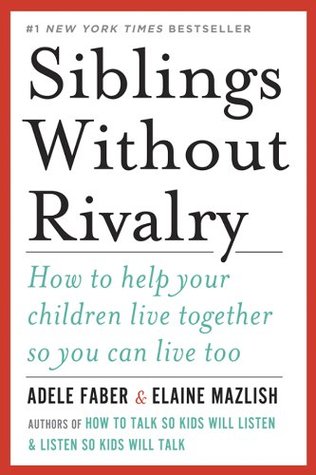More on this book
Community
Kindle Notes & Highlights
by
Adele Faber
Read between
May 1 - May 2, 2024
wanted them to be able to move past that kind of thinking and learn how to really listen to each other, how to respect the differences between them, how to find the ways to resolve those differences. Even if their personalities were such that they never could be friends, at least they would have the power to make a friend and be a friend.”
“we can see how comforting it is to have someone who will listen to our negative feelings. Children are no different. They need to be able to air their feelings and wishes about their siblings. Even the unsavory ones.”
“It’s important to make a distinction between allowing feelings and allowing actions,” I replied. “We permit children to express all their feelings. We don’t permit them to hurt each other. Our job is to show them how to express their anger without doing damage.”
‘Never compare yourself to others. You’ll become either vain or bitter.’
“To be loved equally,” I continued, “is somehow to be loved less. To be loved uniquely—for one’s own special self—is to be loved as much as we need to be loved.”
By valuing and being partial to each child’s individuality, we make sure that each of our children feels like a number one child.”
“What I’m seeing now is that it’s up to the parent to set the tone, to make it clear that no one in the family is ‘the problem.’” “Some of us might have greater needs or greater challenges, but we all need to be accepted as we are.” “And each of us is capable of growth and change.” “Which doesn’t mean we won’t have problems, but we’ll deal with each problem as it comes up. The important thing is to believe in ourselves.” “And believe in each other.” “And support each other, like a team. Because that’s what being a family is all about.”


